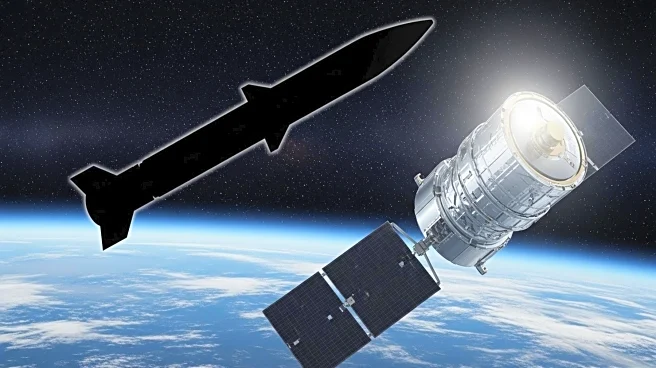What's Happening?
The International Civil Aviation Organization (ICAO) Council is set to condemn North Korea for its interference with satellite-based navigation systems and its continued unannounced missile launches. This condemnation will be presented at the upcoming ICAO Assembly. The Council has documented interference issues dating back to 2011, with ongoing problems reported since October last year in South Korea's Incheon flight information region. A study by South Korea's Ministry of Science and Information Technology found that over 4,400 aircraft from 100 airlines reported unreliable navigation signals due to interference affecting GPS signals. Despite a formal resolution in 2022 demanding cessation of missile launches, North Korea has continued its activities, prompting ICAO to reiterate its concerns. North Korea has responded with indignation, accusing ICAO member countries of politicization and double standards.
Why It's Important?
The ICAO's condemnation of North Korea highlights significant concerns for international aviation safety and security. The interference with satellite navigation systems poses risks to aircraft operations, potentially endangering lives and disrupting global air travel. The unannounced missile launches further exacerbate these risks, creating uncertainty and tension in the region. The situation underscores the challenges of enforcing international aviation standards and the geopolitical complexities involved. Countries relying on safe air travel may face increased operational costs and safety measures, impacting airlines and passengers. The ongoing dispute also reflects broader political tensions between North Korea and other nations, affecting diplomatic relations and regional stability.
What's Next?
The ICAO Assembly will discuss the draft resolution condemning North Korea's actions, potentially leading to further diplomatic pressure on the nation. Member countries may seek additional measures to ensure compliance with international aviation standards. North Korea's response suggests it may continue its activities, requiring ongoing monitoring and engagement from ICAO and affected countries. The situation may prompt discussions on enhancing global aviation safety protocols and addressing geopolitical conflicts impacting air travel.









